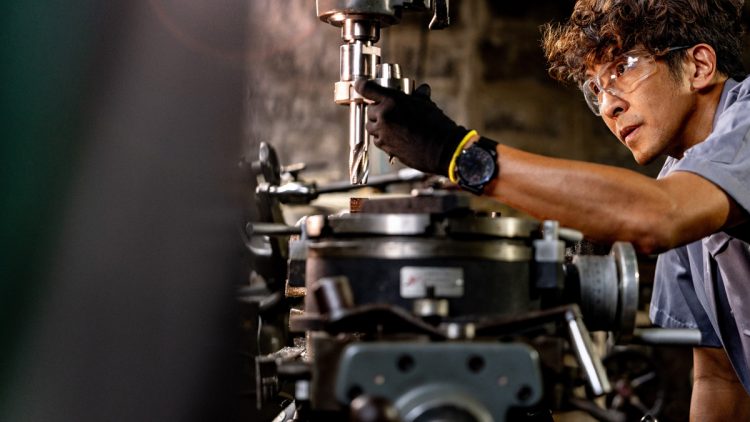What Is a Machinist?
Machinists work in machine shops and manufacturing areas for creating precision tools and components for mechanical devices and items. This post is going to cover what machinists do in their day-to-day jobs and the overall view of being one.
What Is a Machinist?
A machinist is an experienced tradesman with the proficiency and knowledge for creating tools, parts, and items by operating milling and drilling machines, grinding machines, routers, and lathes in a machine shop. It is an extremely precise occupation, requiring the machinist to make cuts to at least 0.001 of an inch. Machinists are in high demand and start working in entry-level positions and apprenticeships. They can learn to become a machinist at work in real time or in a trade school.What Do Machinists Do?
Machinists use machining devices for producing precise components. They run equipment like mills, lathes, drills, and grinders to manufacture items, ranging from straightforward components found in motorcycle frames to something more complex such as a part for a vehicle engine. Overall, a machinist’s job requires them to fabricate, alter, or repair mechanical items. As a result, they must have a viable knowledge of mathematics, mechanics, properties of metals, and machining.Are Machinists in High Demand?
Experienced and proficient machinists are highly desirable tradesmen. There are a lot of job opportunities in transportation, utilitarian, and military sectors. Whereas mass-produced components are more common presently, machinists are still necessary for installing and calibrating the components. This is all the more obvious for custom machined parts. As reported by the Bureau of Labor Statistics, the overall employment of machinists is expected to grow 3% in the next 10 years. CNC machining is a particularly significant and necessary occupation. As long as mechanical components operate with joints, valves, and bearings, machinists are going to be necessary.How To Become a Machinist
It takes around 4 to 5 years for machinists to become completely trained. It is typical for machinists to train while working in a machine shop; however, trade schools also provide machining degrees. The only degree usually required of machinists is a high school diploma or GED. Once they have that, they can become a machinist via apprenticeship programs, trade schools, or community college courses. Whereas some machinists hold an associate degree in the industry, it is not necessarily needed.Machinist FAQs
The following are some general frequently asked questions concerning machinists.How Much Does a Machinist Make?
As reported by the Bureau of Labor Statistics, machinists can bring in an average of around $50,000 a year or $23.00 by the hour. Proficient machinists that work in military and utility companies can make over $100,000 annually.Is Machinist a Good Career?
With a miniscule barrier of entry, high apprenticeship income, and positive job perspective, a career as a machinist is a perfect opportunity. Learning to be a machinist requires dedication; however, it is a rewarding and exciting profession.What Is A CNC Machinist?
CNC is an acronym for Computerized Numerical Control and a computerized manufacturing method with pre-programmed coding that controls equipment. These machinists run heavy machinery for cutting, grinding, and drilling into materials to manufacture precision parts. CNC machinists oversee the machines’ speed, patterns, materials, and programs to guarantee the highest degree of precision.Is Being a Machinist Tense?
Machining can be a tense occupation, as it requires extremely high precision and meticulous attention to detail. Consequently, safety in a machine shop is of the highest degree of importance. CNN named machining as one of the top 10 most hazardous occupations in the US. Accidents do happen, however, can be avoided with precise attention and equipment maintenance.East Valley Precision – Custom Machinery Specialists
East Valley Precision offers custom CNC Machining in the Chandler, Arizona and surrounding areas. When you need precision CNC machining and milling contact East Valley Precision. Call us at 480-288-6601 for more information or use our form for a quote. 0

